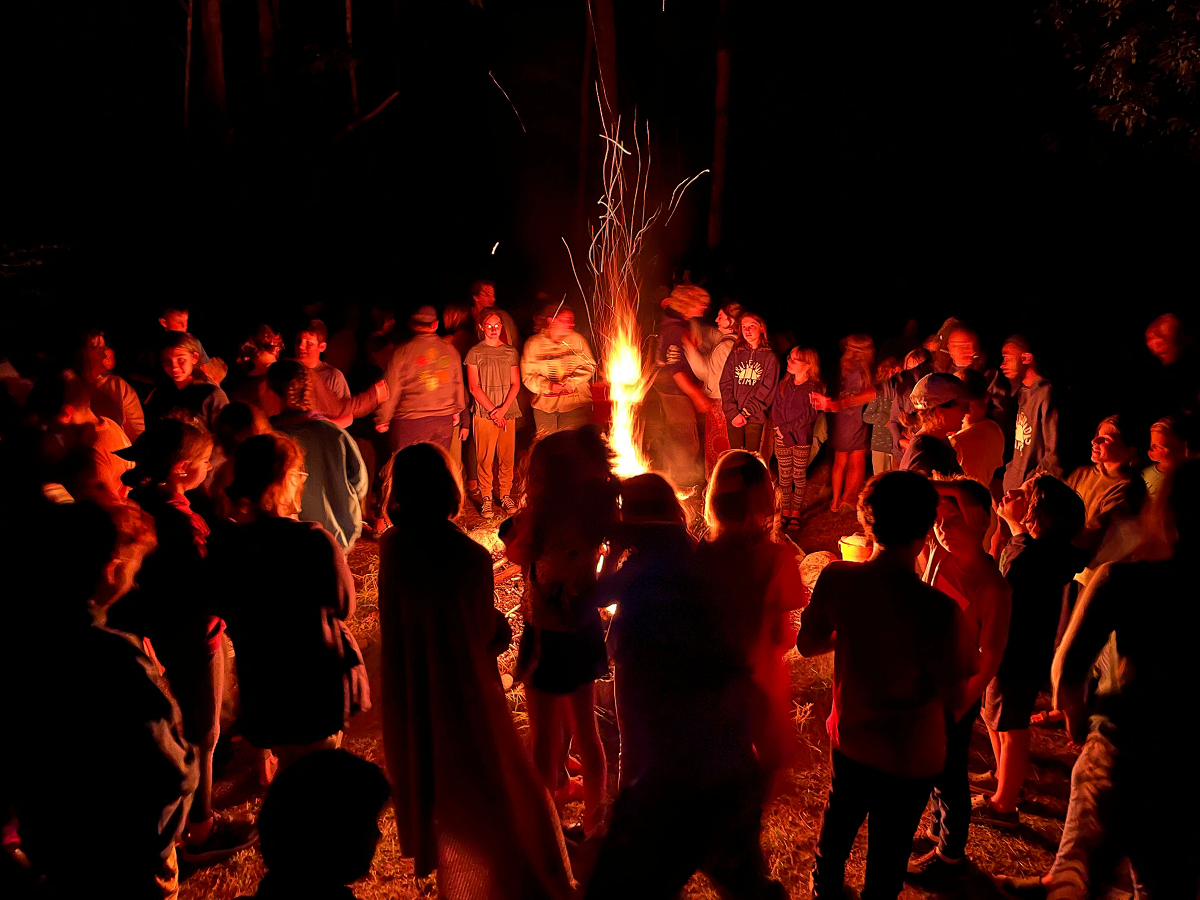
What is Quakerism?
Quakers believe that there is that of God in every person and often refer to God as the Light Within. Friends believe in six testimonies: Simplicity, Peace, Integrity, Community, Equality and Sustainability. Some people remember these six testimonies by the acronym SPICES.
Quakers or Friends believe that all people should have the opportunity to develop their talents and skills under the leadings of the Spirit. Our witness for peace is an affirmation of the Light in every human being. Simplicity means that we strive to live more simply and with a willingness to share with others.
At Friends Camp, these principles guide our interactions with each other. We respect and honor all faiths and beliefs and hope all of our campers will gain a deeper understanding of themselves as individuals and as members of a wider community.
If your child is not Quaker, please remember that we are not interested in proselytizing. Most of the campers are not Quaker; they attend Friends Camp because of the interesting programs, great counselors, wonderful friendships, and the Quaker values that are a part of life at Friends Camp.

Frequently Asked Questions
Answered by the Friends General Conference Advancement and Outreach Committee
-
No. There are many “programmed” or “pastoral” Friends Churches where the worship service is similar to that in other Protestant denominations. Quakers in the programmed and unprogrammed traditions share many beliefs and testimonies, but are also different in significant ways.
-
Quakerism started in England in the 1650s. It grew out of the preaching of George Fox, who rejected the hierarchy and rituals of existing churches, and challenged all people to encounter God directly and to experience the Kingdom of Heaven as a present, living reality.
-
Not all of them. Quakerism has deep Christian roots, and most Quakers consider themselves Christian, but many do not. Quakers have always held that Christ as spirit is universally available, and has been at work since the beginning of creation. This “universalist” perspective is especially strong in the unprogrammed branch of Quakerism. Unprogrammed meetings are often characterized by great theological diversity, while still experiencing profound spiritual community.
-
Many Quakers see Jesus Christ as a great religious teacher, or someone inspired by God to live an exemplary life. Others see Christ as a source of salvation, although in a different sense than most other Christian churches. Quakerism is concerned with life in this world rather than the next, and has no theology of heaven and hell. George Fox taught that redemption through Christ and the Second Coming should not to be thought of as past and future events. Both can only be experienced in the present, as spiritual truth, independent of history.
-
No. Quakers have tried to avoid written creeds, especially in unprogrammed meetings. We want people to attend very carefully to what the Inward Guide is trying to open to them, and to express whatever truth they discover as honestly as they can in their own words. Pre-formulated statements can short-circuit this process and may hamper true spiritual growth.
-
Friends do not believe in outward sacraments–communion and baptism as variously practiced in Christian churches. We seek an inward reality. We believe that all of life is sacred, and that all great human experiences are of a sacramental nature. We value Scripture as it helps us to encounter the Spirit that inspired it. We do not believe that the words themselves are sacred, but only the Spirit. We believe in continuing revelation, and use many different doors to enter into an experience of the sacred.
-
When George Fox was asked to take sides in the English Civil War, he answered that “he lived in the Life and Power that takes away the occasion for war.” Quakers seek to avoid violence on both the personal and the societal level, and affirm that the Spirit that takes away the occasion for war is available to everyone, everywhere, in all situations.
-
Our testimonies are not formulated rules, but ways of being in the world. They are based on our accumulated corporate experience of the divine, including what is written in the Bible, but also including modern day experience. The basic Quaker testimonies have been described as: simplicity, integrity, equality, community, sustainability and peace.
Quaker Resources: Organizations, Youth Retreats, Camps and Schools
New England Yearly Meeting of Friends (Quakers): www.neym.org
Young Friends Retreats (Teenage Retreats): www.neym.org
JYM (Junior Yearly Meeting) Retreats: www.quakermedia.typepad.com/jym_retreats/
JHYM (Junior High Yearly Meeting) Retreats: www.jrhiquakers.org
A List of Quaker Schools: www.friendscouncil.org
Friends School of Portland: www.friendsschoolofportland.org
Cambridge Friends School: www.cfsmass.org
Moses Brown School: www.mosesbrown.org
Lincoln School: www.lincolnschool.org
Beacon Hill Friends House: www.bhfh.org
Woolman Hill Conference Center: www.woolmanhill.org
Earlham College: www.earlham.edu
Guilford College: www.guilford.edu
Information about Quakers and Quaker Groups: www.quakerinfo.org
